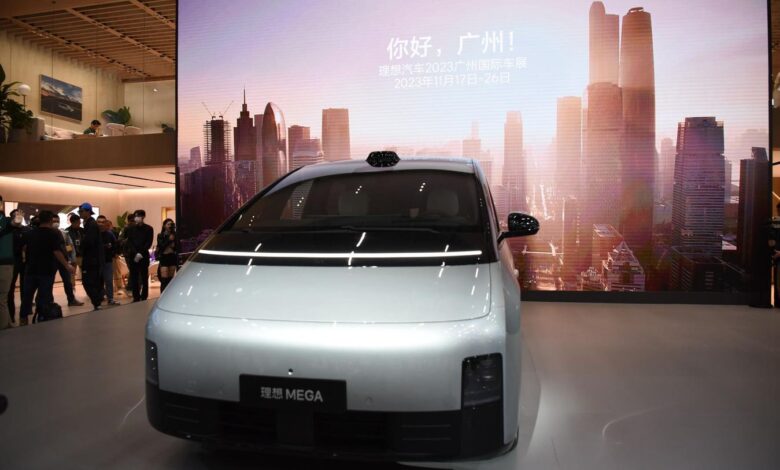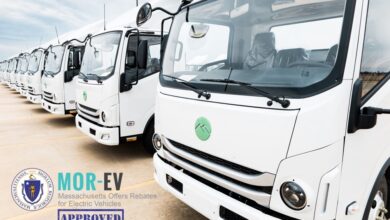Chinese EV Mogul Loses Almost Half His $10 Billion Fortune In A Month

An all-electric Li Auto Mega is shown at the Auto Guangzhou 2023.
Qu Jinwei/VCG via Getty Images
Li Xiang, founder of Chinese electric vehicle maker Li Auto, has seen his $10 billion wealth shrink almost in half in a little more than a month, as aggressive discounts, a lackluster product launch and broader market volatility cause investors to reassess his company’s outlook.
The 42-year-old mogul, whose fortune is based on a company stake, is now worth $6.1 billion, according to Forbes estimates. Shares of the dual-listed Li Auto have plunged more than 40% on the Nasdaq from a high in late February, when the company wowed the market with a stellar earnings announcement. They’ve fallen 45% on Hong Kong’s Hang Seng Index.
But the EV industry has hit some big potholes, especially as troubles at industry leader Tesla mount, says Wang Hanyang, a Shanghai-based analyst at research firm 86Research. Escalating tensions in the Middle East have also roiled global markets and caused investors to pull back from riskier assets such as technology and EV stocks, according to Eric Wen, Hong Kong-based founder of research firm Blue Lotus Capital Advisors.
Li Auto has been forced to join a bruising EV price war, especially after it failed to excite the market with its latest model. After Tesla over the weekend cut prices across the board in China, Li Auto on Monday lowered the price of its older models by as much as 30,000 yuan ($4,141) or 5%.
Shares of the company fell as much as 9% during trading Monday in Hong Kong. 86Research’s Wang says investors worry the aggressive cuts may hurt the company’s gross profit margin and cause it to dip below 20% in the second quarter of this year. During the final three months of 2023, its gross profit margin was 23.5%, according to its latest financial results available.
The billionaire, however, needs to sell cars and the best way is by making them cheaper. The highly anticipated Li Mega was supposed to lead the company’s charge into the fully electric market when it was launched in March, but the seven-seater MPV hasn’t been a hit due to its design and sticker prices that start at 559,800 yuan ($78,000).
Li himself has admitted to mistakes, saying in an online statement that “the operating strategy of Li Mega was mis-paced.” In the same statement, the company lowered its delivery outlook for the first quarter to a range of 76,000 to 78,000 vehicles, down from a previously projected 100,000 to 103,000 cars.
Last Friday, the company introduced the hybrid L6 SUV, but analysts say unlike previous cars such as the hybrid Li L7, L8 and L9, this product faces really tough competition.
Li Auto has made the L6 a tad smaller to broaden its product line-up, instead of just offering the large-sized cars that helped it to carve out a comfortable niche with family users in China. Yet the L6, which starts at 249,000 yuan and is Li Auto’s cheapest model to date, faces a new level of competition. Yale Zhang, managing director of Shanghai-based consultancy Automotive Foresight, says there are many competitors the size of the L6.
Aito, the EV brand backed by Chinese smartphone and telecommunications giant Huawei, is due to unveil on Tuesday a revamped version of its M5, a direct competitor to the L6. The M7, with a starting price of 289,800 yuan, is already on the market. All the vehicles use so-called extended range technologies, which include a gasoline-powered engine so that batteries can be charged on the go.
Li Auto is also widely reported to have lowered its delivery target for this year to 560,000 to 640,000 cars, down from a previous 800,000 vehicles. Wang projects that the company might end up delivering 600,000 vehicles for the entire year. He also says the industry’s price war will continue as long as production exceeds demand.



